
The Enchanting Aquitaine Coast: France's Coastal Gem
The Aquitaine Coast, nestled in the southwestern corner of France, is a paradise for beach lovers and surfers alike. Stretching from the mouth of the Gironde Estuary down to the Spanish border, this coastline offers some of the most stunning and unspoiled beaches in Europe. With its golden sands and rolling waves, it is a haven for those seeking both relaxation and adventure. One of the highlights of the Aquitaine Coast is the Dune of Pilat, the tallest sand dune in Europe. Climbing this monumental dune offers breathtaking views over the Atlantic Ocean and the lush pine forests of the Landes de Gascogne. It is a perfect spot for those who enjoy hiking and photography. The charm of this region is not limited to its natural beauty. The coastal towns like Biarritz, Arcachon, and Hossegor exude a unique blend of French elegance and laid-back surf culture. These towns are brimming with chic boutiques, gourmet restaurants, and vibrant markets. Visitors can indulge in fresh seafood, local wines, and delightful pastries, making every meal a memorable experience. For history enthusiasts, the Aquitaine Coast offers a rich tapestry of heritage sites. From medieval castles to ancient Roman ruins, there is plenty to explore. The region's history is closely linked with its maritime past, and museums dedicated to maritime heritage provide fascinating insights into the life and times of this coastal area. Whether you are looking to catch the perfect wave, explore historical landmarks, or simply unwind on a serene beach, the Aquitaine Coast has something for everyone. Its natural beauty, cultural richness, and warm hospitality make it an unforgettable destination.
Local tips in Aquitaine Coast
- Visit during the shoulder seasons (late spring or early fall) to avoid the summer crowds and enjoy milder weather.
- Rent a bike to explore the extensive network of cycling trails along the coast and through the pine forests.
- Try the local specialty, oysters from Arcachon Bay, for a true taste of the region.
- Pack layers, as coastal weather can be unpredictable with sudden changes in temperature.
- Consider staying in a local guesthouse or bed and breakfast for a more authentic and personalized experience.
The Enchanting Aquitaine Coast: France's Coastal Gem
The Aquitaine Coast, nestled in the southwestern corner of France, is a paradise for beach lovers and surfers alike. Stretching from the mouth of the Gironde Estuary down to the Spanish border, this coastline offers some of the most stunning and unspoiled beaches in Europe. With its golden sands and rolling waves, it is a haven for those seeking both relaxation and adventure. One of the highlights of the Aquitaine Coast is the Dune of Pilat, the tallest sand dune in Europe. Climbing this monumental dune offers breathtaking views over the Atlantic Ocean and the lush pine forests of the Landes de Gascogne. It is a perfect spot for those who enjoy hiking and photography. The charm of this region is not limited to its natural beauty. The coastal towns like Biarritz, Arcachon, and Hossegor exude a unique blend of French elegance and laid-back surf culture. These towns are brimming with chic boutiques, gourmet restaurants, and vibrant markets. Visitors can indulge in fresh seafood, local wines, and delightful pastries, making every meal a memorable experience. For history enthusiasts, the Aquitaine Coast offers a rich tapestry of heritage sites. From medieval castles to ancient Roman ruins, there is plenty to explore. The region's history is closely linked with its maritime past, and museums dedicated to maritime heritage provide fascinating insights into the life and times of this coastal area. Whether you are looking to catch the perfect wave, explore historical landmarks, or simply unwind on a serene beach, the Aquitaine Coast has something for everyone. Its natural beauty, cultural richness, and warm hospitality make it an unforgettable destination.
When is the best time to go to Aquitaine Coast?
Iconic landmarks you can’t miss
La Cité du Vin
Explore the global heritage of wine at Bordeaux's architectural marvel, La Cité du Vin, with immersive exhibits and panoramic tasting experiences.
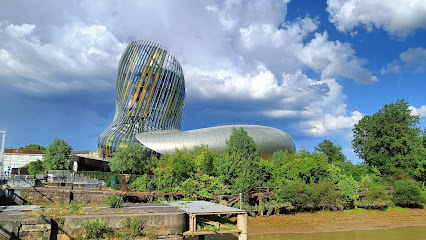
Place de la Bourse
Discover Place de la Bourse in Bordeaux: a symbol of elegance, history, and architectural beauty, featuring the mesmerizing Miroir d'Eau.
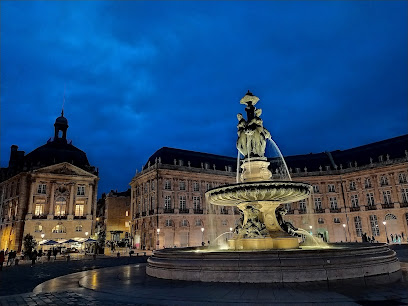
Rocher de la Vierge
Discover Biarritz's iconic Rocher de la Vierge: a historic site offering breathtaking panoramic views of the Atlantic Ocean and the Basque coastline.
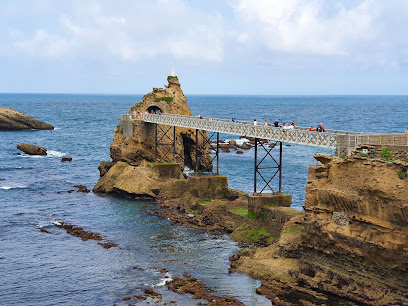
Castelnaud-la-Chapelle Castle
Explore a stunningly restored medieval fortress in the Dordogne Valley, housing a vast collection of medieval weaponry and siege engines.
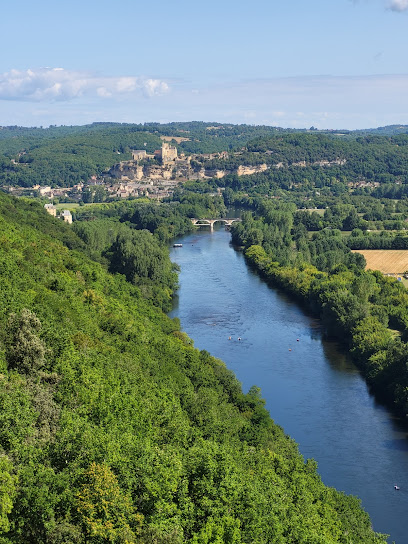
Monument aux Girondins
A majestic monument in Bordeaux's Place des Quinconces, honoring the Girondists and symbolizing liberty with its iconic column and bronze fountains.
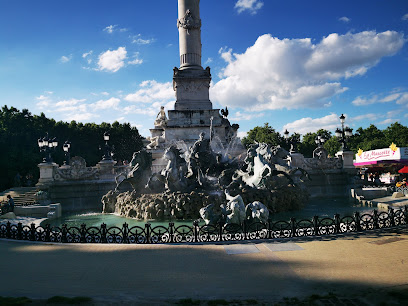
Porte de Bourgogne
Discover the historic Porte de Bourgogne in Bordeaux, a neoclassical archway offering a glimpse into the city's rich past and architectural beauty.
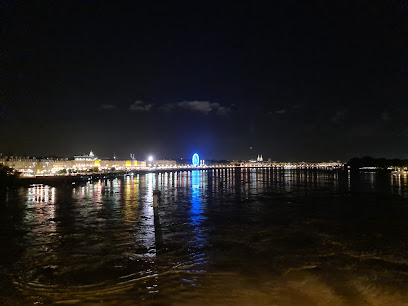
Grosse Cloche
Discover Bordeaux's iconic Grosse Cloche, a historic bell tower and medieval gateway offering panoramic city views.
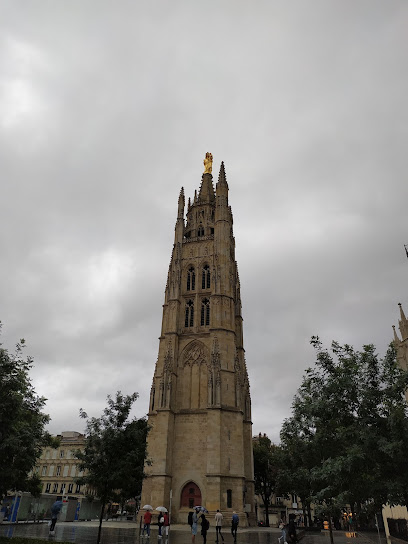
Porte Cailhau
Explore the historic Porte Cailhau in Bordeaux, a medieval gate offering stunning views and a glimpse into the city's past.
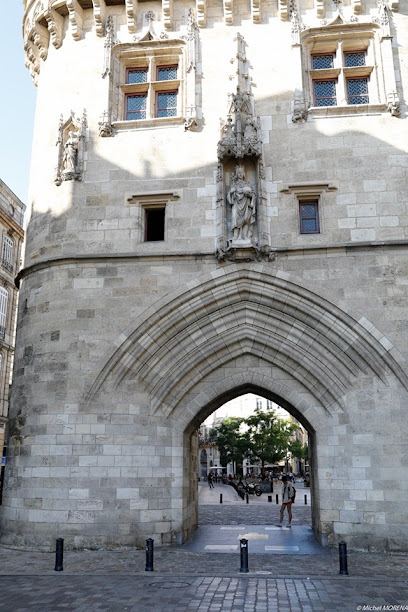
Monolithic Church of Saint-Emilion
Discover the Monolithic Church in Saint-Émilion, an extraordinary underground marvel carved from limestone, steeped in history and religious significance.
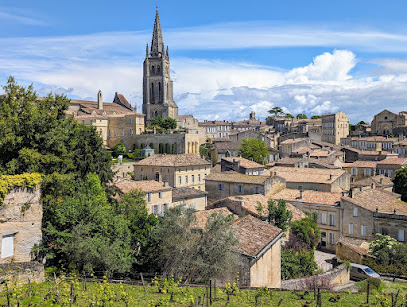
Musée d'Aquitaine
Explore 400,000 years of Bordeaux and Aquitaine history, from prehistoric times to today, through extensive archaeological and ethnographic collections.

Free Walking Tours Bordeaux (english/español)
Experience the charm and history of Bordeaux through engaging walking tours in English and Spanish with Free Walking Tours Bordeaux.
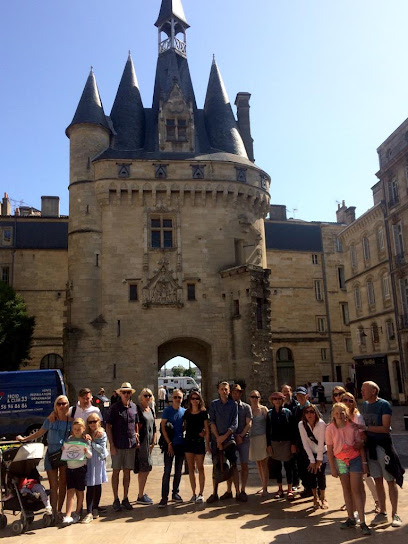
Porte d'Aquitaine
Discover the grandeur of Bordeaux's past at the Porte d'Aquitaine, a stunning neoclassical gateway and historical landmark.
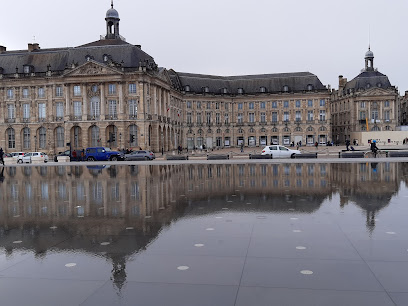
Statue Cyrano de Bergerac
A tribute to Cyrano de Bergerac, the monument captures the wit, romance, and bravery of the iconic literary figure in the heart of Bergerac.
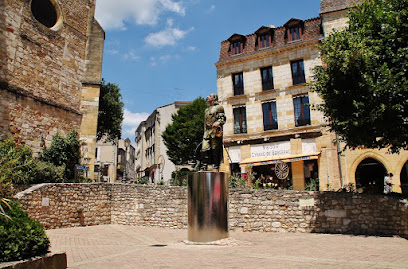
Les Jardins de Cadiot
Explore ten themed gardens in the Dordogne Valley, a romantic landscape featuring perennials, sculptures, and family history.
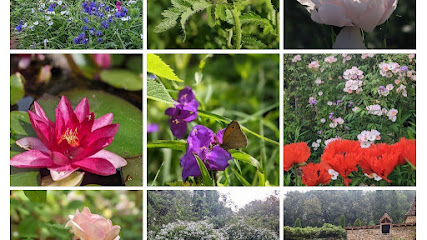
Château Troplong Mondot
Discover the legacy of Château Troplong Mondot, a Premier Grand Cru Classé in Saint-Émilion, offering exceptional wines and stunning vineyard views.
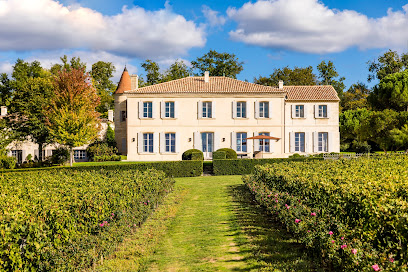
Unmissable attractions to see
La Cité du Vin
Explore the fascinating world of wine at La Cité du Vin in Bordeaux: an architectural marvel offering immersive exhibits, tastings, and breathtaking panoramic views of the city and vineyards.
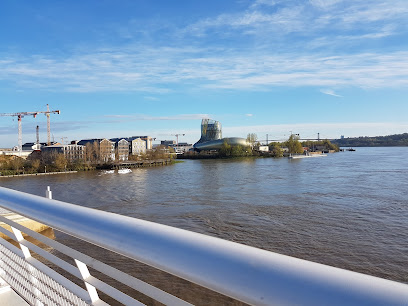
Bonaguil Castle
Explore Château de Bonaguil, a majestic medieval fortress in the heart of Lot-et-Garonne, offering a captivating journey through centuries of history and architectural innovation.
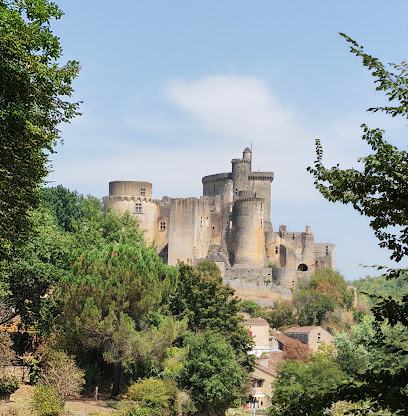
Château de Bridoire
Discover Château de Bridoire, the 'Castle of Games' in Dordogne: a historic château with over 100 games, medieval reenactments, and family fun in the Monbazillac vineyards.
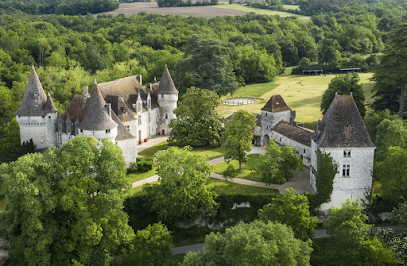
Bordeaux Museum of Fine Arts
Discover masterpieces from the 15th to 20th centuries at Bordeaux's Musée des Beaux-Arts, showcasing European art with a focus on French, Flemish, and Dutch masters, plus local Bordeaux artists.
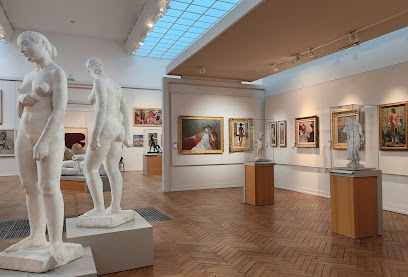
National Hunting Reserve and Wildlife Arjuzanx
Discover Arjuzanx National Reserve: A haven for migratory birds and diverse wildlife in the heart of the Landes forest, offering serene landscapes and enriching nature experiences.
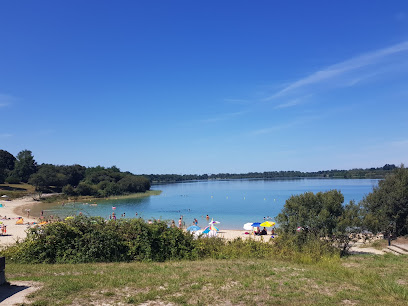
The Grand Etang La Jemaye
Discover the serene beauty of Grand Étang de la Jemaye, a stunning lakeside retreat in rural France, perfect for relaxation, outdoor adventures, and family-friendly fun in the heart of the Dordogne.
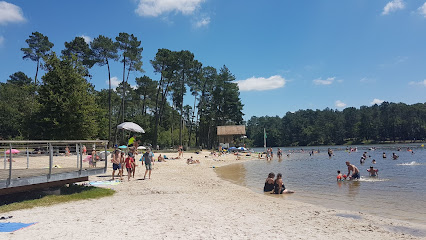
Plage de l'océan
Discover Plage de l'Océan in Lège-Cap-Ferret: a stunning Atlantic beach offering golden sands, clear waters, vibrant beach clubs, and unforgettable sunsets for the perfect coastal escape.
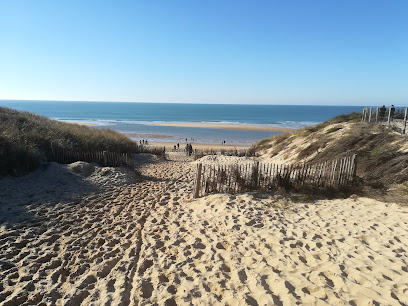
Plage des Bourdaines
Discover Plage des Bourdaines in Seignosse: a serene surfing beach with golden sands, perfect for relaxation, water sports, and exploring the beautiful Landes coastline.
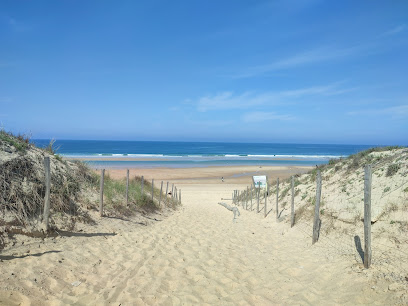
Phare de Contis
Ascend the Landes' only lighthouse, a 'barber pole' marvel nestled in a pine forest, for panoramic coastal views and a glimpse into maritime history, a short distance from Contis-les-Bains.
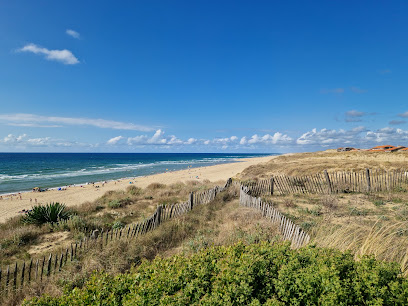
Parc de l'Aventure
Experience high-flying thrills and forest adventures at Parc de l'Aventure in Vendays-Montalivet, Médoc – treetop courses, giant zip lines, and outdoor fun for all ages near the Atlantic coast.
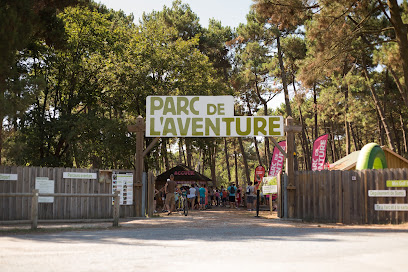
The Domain of Certes-Graveyron
Discover a haven of biodiversity at Domaine de Certes-Graveyron on Arcachon Bay, where coastal landscapes meet rich history and offer serene trails for nature lovers and birdwatchers.
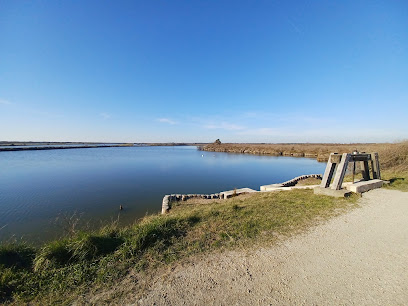
Plage des Casernes
Discover Seignosse's Plage des Casernes: a wild, unspoiled beach nestled between dunes and forest, offering surf, serenity, and stunning sunsets on the Atlantic coast.
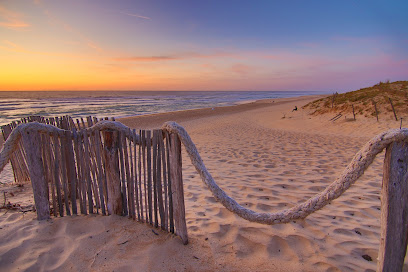
Park Pombonne
Discover Bergerac's green oasis: Pombonne Park offers a refreshing escape with a lake, beach, walking trails, and family-friendly activities, just minutes from the city center.
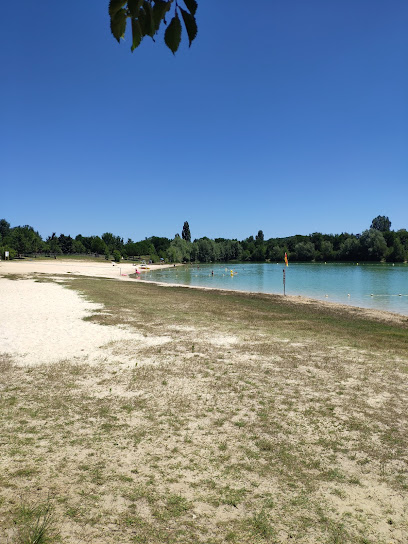
Basilique Notre-Dame-de-la-Fin-des-Terres de Soulac-sur-Mer
Explore the serene beauty of the Basilique Notre-Dame-de-la-Fin-des-Terres in Soulac-sur-Mer, a stunning architectural gem by the Atlantic coast.
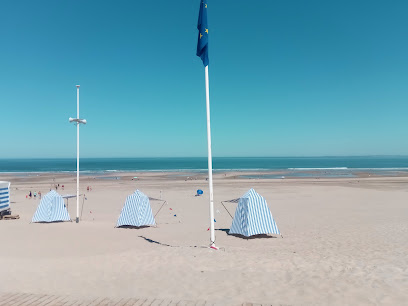
Beach Mauret
Escape to the tranquil shores of Beach Mauret in Andernos-les-Bains, where golden sands meet the stunning Arcachon Bay, offering a serene retreat for relaxation and natural beauty.
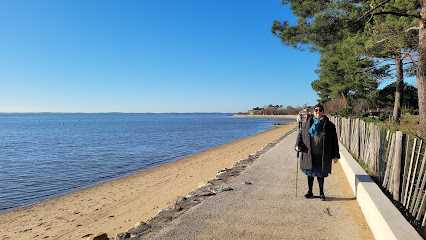
Essential places to dine
L'Estacade
Experience exquisite French cuisine at L'Estacade in Bordeaux with stunning riverside views and seasonal delights.
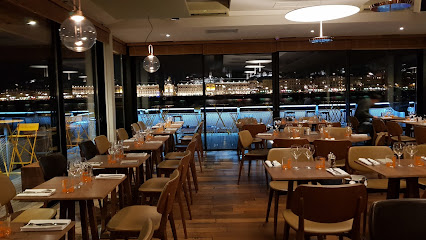
Le 7 Restaurant
Experience exquisite French cuisine at Le 7 Restaurant in Bordeaux, where every meal offers stunning river views and culinary excellence.
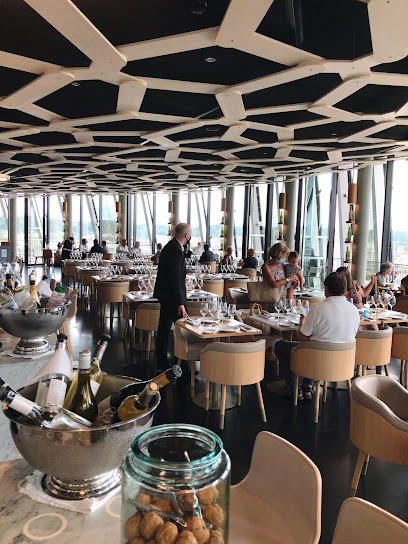
Le K Baroque
Experience authentic French cuisine at Le K Baroque - where exquisite flavors meet stunning riverside views in Bordeaux.
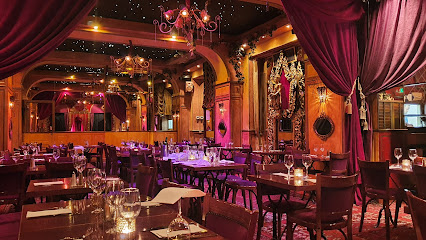
Chai Bertrand
Discover Chai Bertrand in Lège-Cap-Ferret - where fresh oysters and local seafood create an unforgettable dining experience by the sea.
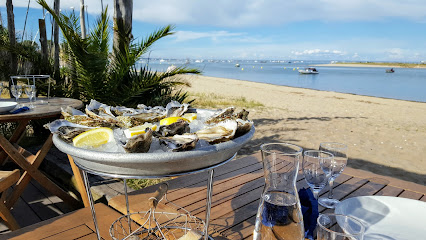
Restaurant La Lagune
Experience authentic French cuisine with stunning ocean views at Restaurant La Lagune in La Teste-de-Buch.
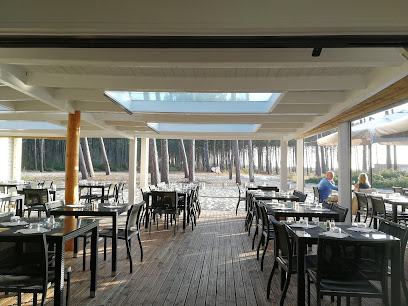
La Cabane des JAUD
Discover culinary excellence at La Cabane des JAUD - where fresh seafood meets stunning views in Gujan-Mestras.
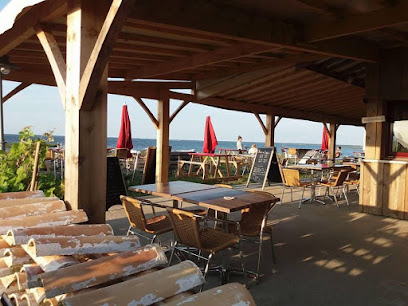
L'Oiseau Bleu
Discover exquisite haute French cuisine at L'Oiseau Bleu in Bordeaux, where every dish tells a story of culinary excellence and local flavors.
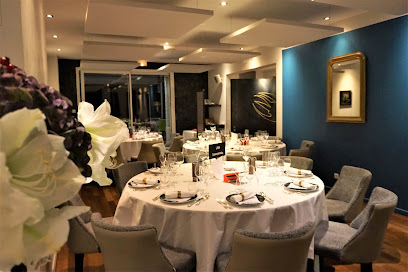
Restaurant Son'
Discover exquisite haute French cuisine at Restaurant Son' in Bordeaux - where every dish is a masterpiece crafted with passion.
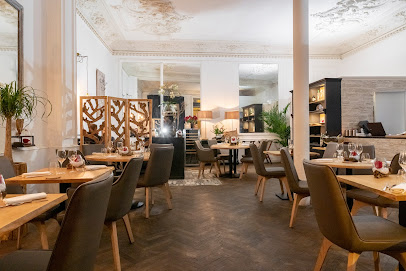
Café Maritime - Bordeaux
Experience exquisite brunches and vibrant cocktails at Café Maritime in Bordeaux - your gateway to local flavors and stunning waterfront views.
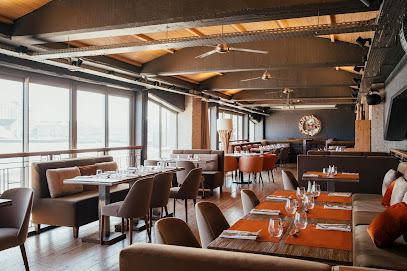
Arcada
Discover an exceptional fine dining experience at Arcada Restaurant in Bordeaux, where culinary artistry meets local flavors in an elegant setting.
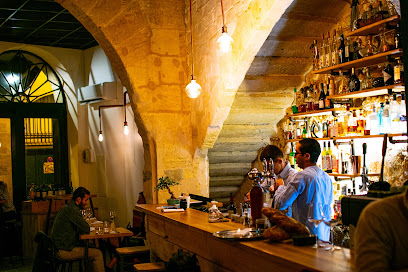
La table de Catusseau
Discover authentic French cuisine at La Table de Catusseau in Pomerol – where tradition meets innovation in every dish.
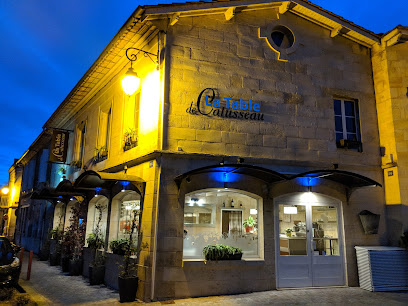
Restaurant Influences
Experience the essence of haute French cuisine at Restaurant Influences in Bordeaux, where every dish tells a story of culinary excellence.
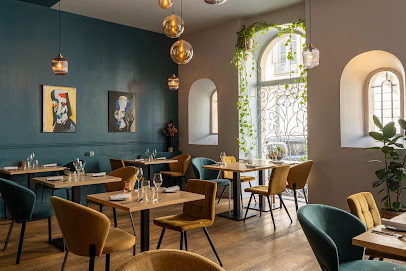
A LA GRAPPE D'OR
Experience exquisite French cuisine at A La Grappe D'Or in Monbazillac, where local flavors meet culinary artistry for an unforgettable dining experience.
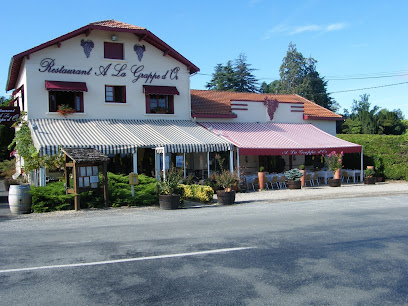
L'Entrée Jardin
Experience exquisite French and Mediterranean cuisine at L'Entrée Jardin in Cadillac-sur-Garonne—where every meal is a celebration of flavor.
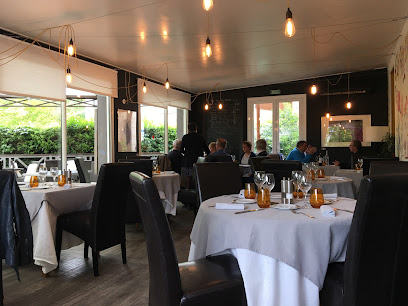
Le Pressoir d'Argent - Gordon Ramsay
Experience unparalleled French cuisine at Le Pressoir d'Argent by Gordon Ramsay in Bordeaux - a fine dining destination for food lovers.
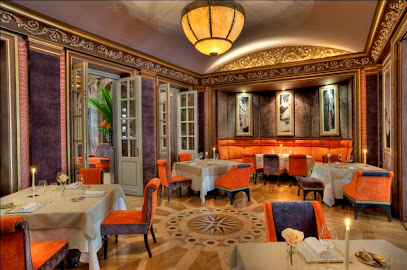
Markets, malls and hidden boutiques
Mériadeck
Explore Mériadeck Shopping Mall in Bordeaux – a vibrant blend of shopping, dining, and entertainment for every traveler.
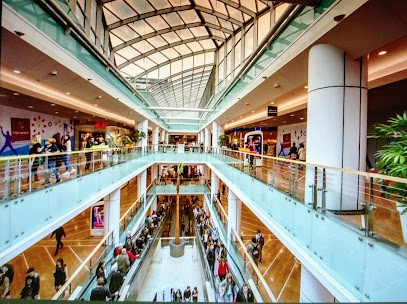
Promenade Sainte Catherine
Explore Promenade Sainte Catherine, a vibrant shopping mall in Bordeaux with unique boutiques, delightful cafes, and a lively atmosphere.
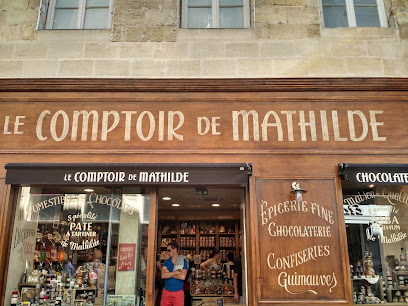
Centre commercial Rives d'Arcins
Explore the vibrant Centre Commercial Rives d'Arcins, a shopping paradise in Bègles, France, featuring diverse stores, dining, and entertainment options.
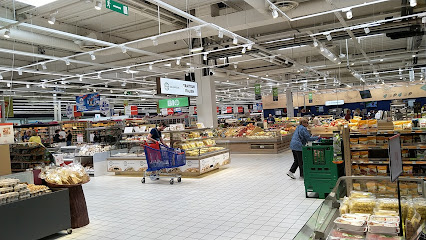
Centre commercial Mérignac Soleil
Discover the vibrant shopping paradise of Centre Commercial Mérignac Soleil, featuring a diverse mix of stores, eateries, and family-friendly amenities.
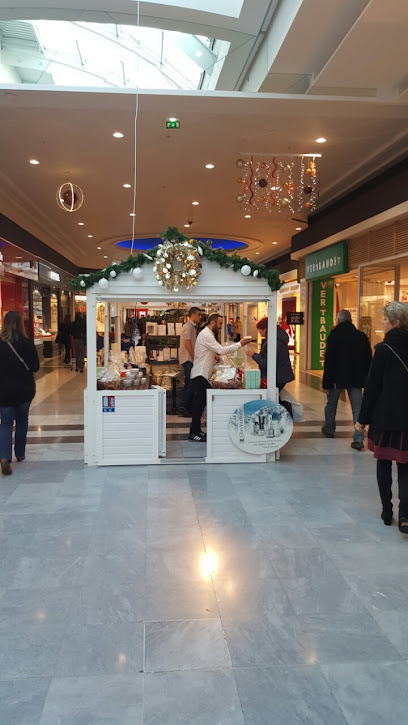
Centre Commercial le Grand Mail
Explore Centre Commercial le Grand Mail for a delightful shopping experience in Saint-Paul-lès-Dax, featuring diverse shops, dining, and family-friendly entertainment.
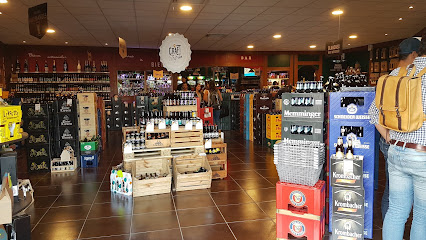
Bord'eau Village
Discover Bord'eau Village in Bordeaux, a vibrant destination blending gourmet grocery shopping, dining, and co-working in a historic waterfront setting.
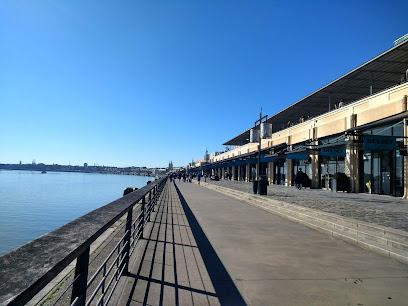
Galeries Lafayette Bordeaux
Explore Galeries Lafayette Bordeaux for a luxurious shopping experience with a vast selection of fashion, beauty, and home goods.
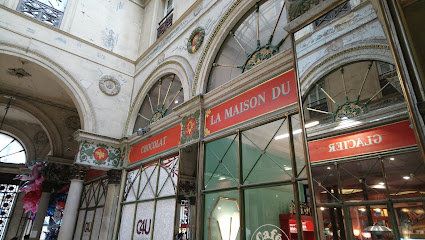
Primark
Explore affordable fashion and trendy styles at Primark Bordeaux, the ultimate shopping destination for savvy tourists.
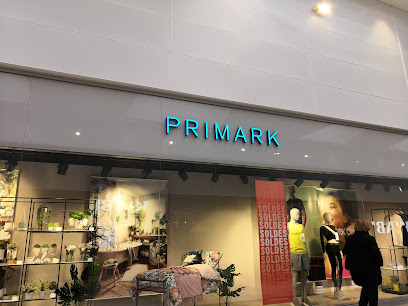
La Galerie des Grands Hommes
Explore the architectural beauty and vibrant shopping scene at La Galerie des Grands Hommes in Bordeaux, where culture meets retail.
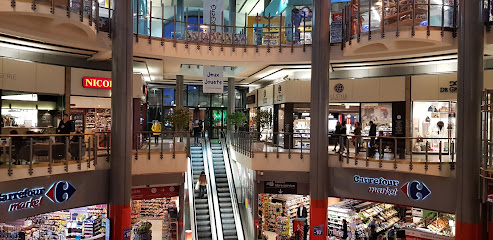
alinea Mérignac
Explore Alinea Mérignac for an exquisite selection of home goods and furniture, blending style, comfort, and sustainability in every piece.
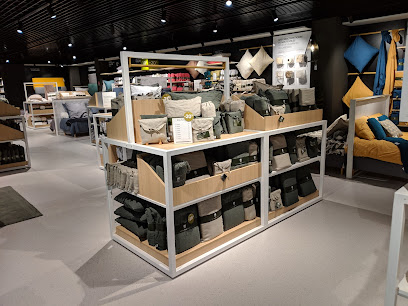
La Foir'Fouille
Explore La Foir'Fouille in Bergerac for an eclectic mix of home goods, garden furniture, hobby supplies, and unique finds for every taste.
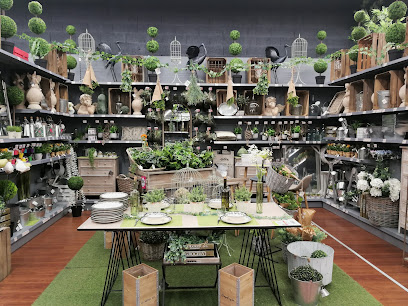
Ivantout Neuvic
Explore Ivantout Neuvic for a unique selection of home goods and outdoor furniture, perfect for enhancing your living space while visiting France.
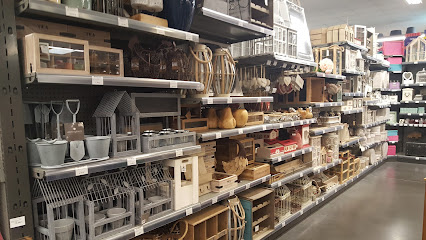
Galeries Lafayette Libourne
Explore Galeries Lafayette Libourne: A premier department store offering a curated mix of fashion, beauty, and lifestyle items in a stunning setting.
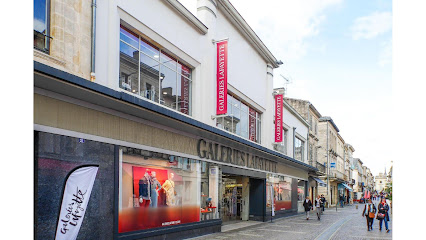
Galerie Bordelaise
Experience the vibrant shopping and cultural essence of Bordeaux at the historic Galerie Bordelaise, a premier shopping destination for all.
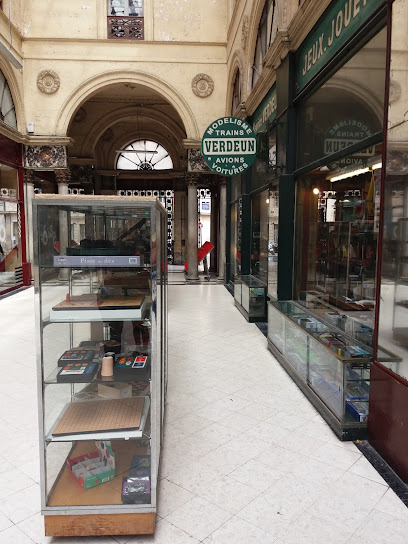
Galeries Lafayette Langon
Explore Galeries Lafayette Langon, a vibrant department store offering a diverse range of fashion, beauty, and lifestyle products in the heart of France.
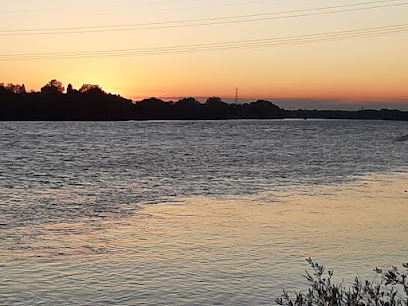
Essential bars & hidden hideouts
La Guinguette Chez Alriq
Discover the lively atmosphere and exquisite tapas at La Guinguette Chez Alriq in Bordeaux, where culinary delights meet live music.
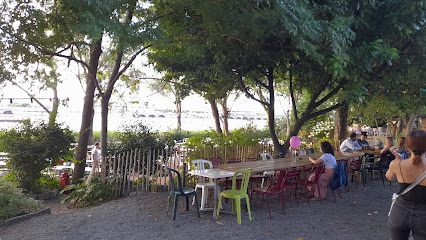
The Frog & Rosbif
Experience the unique blend of British pub culture and French cuisine at The Frog & Rosbif in Bordeaux, a must-visit culinary destination.
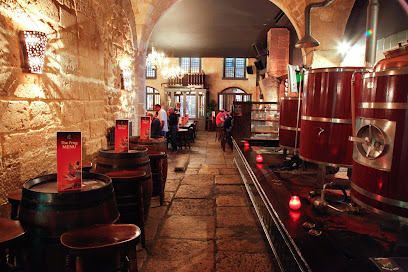
La Calle Ocho
La Calle Ocho: Discover Bordeaux's vibrant salsa scene with electrifying music, delicious cocktails, and a welcoming atmosphere for all.
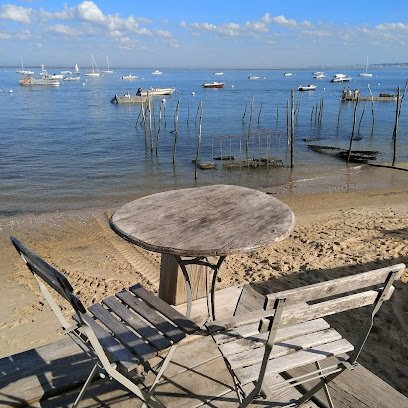
La Comtesse
Discover the vibrant nightlife of Bordeaux at La Comtesse, where delightful drinks and a lively atmosphere await every visitor.
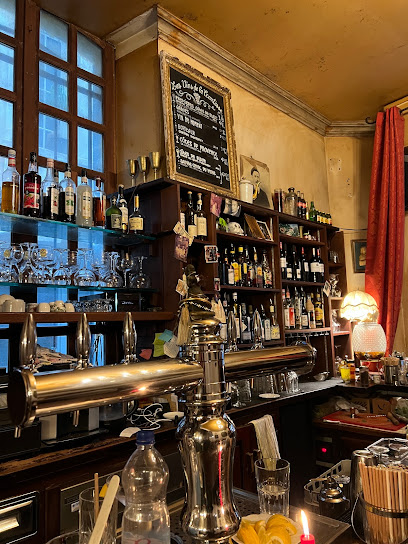
L'apollo bar
Experience the lively ambiance of L'apollo Bar in Bordeaux, where locals and tourists mingle over exquisite drinks in a charming setting.
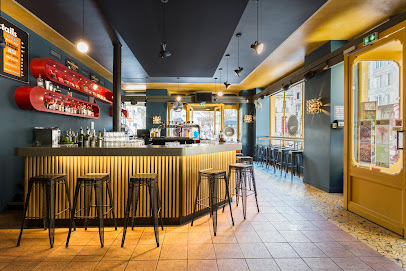
VINTAGE BAR - Rhumerie & Pub
Experience the vibrant nightlife of Bordeaux at Vintage Bar, where exquisite rums and a welcoming atmosphere await every visitor.
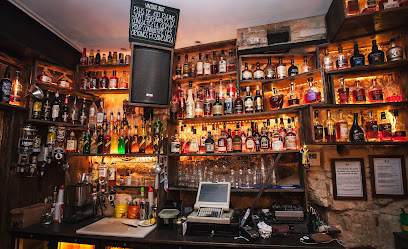
Madame Pang
Experience the fusion of Mandarin cuisine and handcrafted cocktails at Bordeaux's stylish cocktail bar, Madame Pang, where every visit is a celebration.
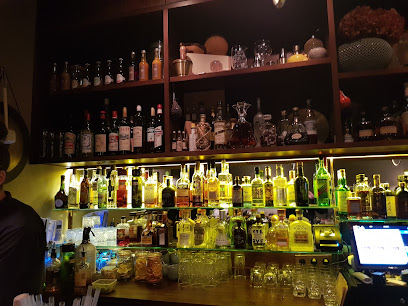
The Black Flag
Discover the vibrant nightlife at The Black Flag, a premier cocktail bar in Bordeaux known for its innovative drinks and lively atmosphere.
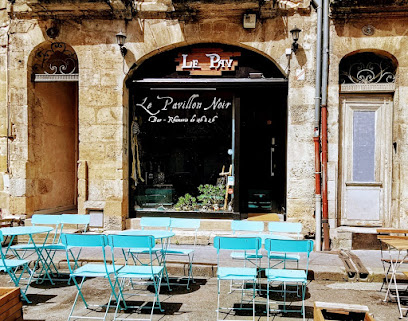
Le fiacre
Discover Le Fiacre, Bordeaux's lively bar offering crafted cocktails and unforgettable live music experiences in a vibrant atmosphere.
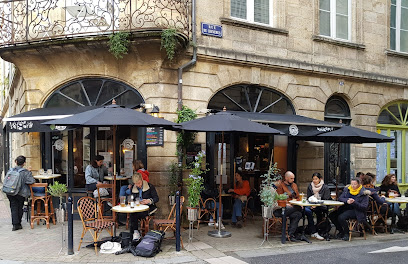
Snug
Discover the cozy charm of Snug, Pau's premier cocktail bar and wine store, where exquisite drinks and a warm atmosphere await.
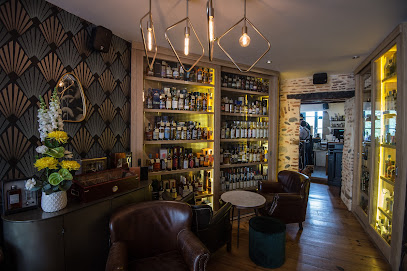
Jamboree Shooters Bar
Discover the lively Jamboree Shooters Bar in Bordeaux, a cocktail haven that promises a memorable nightlife experience with creative drinks and vibrant ambiance.
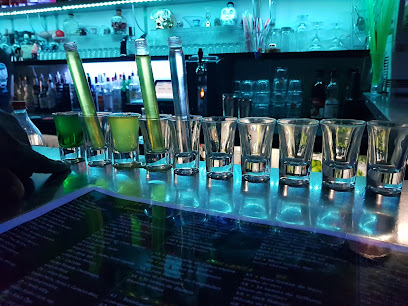
BALTHAZAR - Cult beers & Nice drinks
Discover Balthazar in Bordeaux for an exceptional selection of craft beers and cocktails in a vibrant and inviting atmosphere.
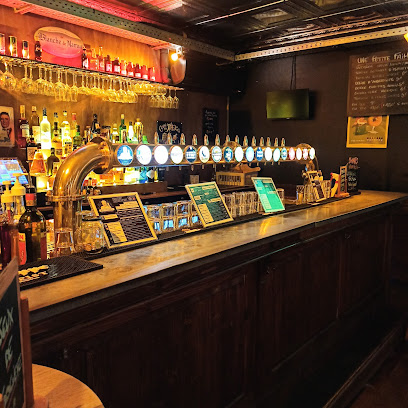
Marikita
Discover the vibrant nightlife at Marikita, an inviting bar in Bordeaux offering exquisite drinks and a lively atmosphere along the scenic riverfront.

LORD LION Bar Pub
Discover the lively spirit of Bordeaux at Lord Lion Bar Pub, where cocktails, karaoke, and camaraderie come together for an unforgettable night.
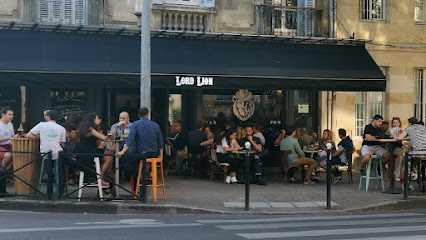
Le Bar A2
Experience the charm of Bordeaux at Le Bar A2, a premier cocktail lounge offering handcrafted drinks and a vibrant atmosphere.
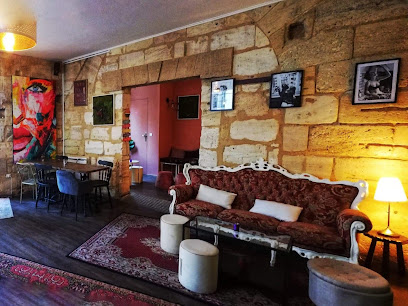
Local Phrases about Aquitaine Coast
-
- HelloSalut
[sah-lute] - GoodbyeAu revoir
[oh ruh-vwah] - YesOui
[wee] - NoNon
[nohn] - Please/You're welcomeS'il vous plaît
[see voo pleh] - Thank youMerci
[mehr-see] - Excuse me/SorryExcusez-moi
[ex-kew-zay mwah] - How are you?Comment ça va?
[koh-mohn sah vah] - Fine. And you?Bien. Et toi?
[byen. ey twah] - Do you speak English?Parlez-vous anglais?
[par-lay voo ahn-glay] - I don't understandJe ne comprends pas
[zhuh nuh kohm-prahnd pah]
- HelloSalut
-
- I'd like to see the menu, pleaseJe voudrais voir le menu, s'il vous plaît
[zhuh voo-dray vwahr luh menu, see voo pleh] - I don't eat meatJe ne mange pas de viande
[zhuh nuh mahnj pah duh vyand] - Cheers!Santé!
[sahn-tay] - I would like to pay, pleaseJe voudrais payer, s'il vous plaît
[zhuh voo-dray pay-ay, see voo pleh]
- I'd like to see the menu, pleaseJe voudrais voir le menu, s'il vous plaît
-
- Help!Au secours!
[oh seh-koor] - Go away!Allez-vous en!
[ah-lay voo zahn] - Call the Police!Appelez la police!
[ah-pay-lay lah poh-lees] - Call a doctor!Appelez un médecin!
[ah-pay-lay uh may-duh-sahn] - I'm lostJe suis perdu
[zhuh swee pair-doo] - I'm illJe suis malade
[zhuh swee mah-lahd]
- Help!Au secours!
-
- I'd like to buy...Je voudrais acheter...
[zhuh voo-dray ah-shet-ay] - I'm just lookingJe regarde juste
[zhuh ruh-gard juhst] - How much is it?Combien ça coûte?
[kohm-byen sah koot] - That's too expensiveC'est trop cher
[say troh shehr] - Can you lower the price?Pouvez-vous baisser le prix?
[poo-vez voo bay-say luh pree]
- I'd like to buy...Je voudrais acheter...
-
- What time is it?Il est quelle heure?
[eel eh kell uhr] - It's one o'clockIl est une heure
[eel eh oon uhr] - Half past (10)Dix et demi
[dees ay duh-mee] - MorningMatin
[mah-tahn] - AfternoonAprès-midi
[ah-pray mee-dee] - EveningSoir
[swahr] - YesterdayHier
[yehr] - TodayAujourd'hui
[oh-zhoor dewee] - TomorrowDemain
[duh-man] - 1Un
[uhn] - 2Deux
[duh] - 3Trois
[twah] - 4Quatre
[kat-ruh] - 5Cinq
[sank] - 6Six
[sees] - 7Sept
[sept] - 8Huit
[wheet] - 9Neuf
[nuff] - 10Dix
[dees]
- What time is it?Il est quelle heure?
-
- Where's a/the...?Où est...?
[oo eh] - What's the address?Quelle est l'adresse?
[kehl eh la-dress] - Can you show me (on the map)?Pouvez-vous me montrer (sur la carte)?
[poo-vez voo muh mohn-tray (soor lah kart)] - When's the next (bus)?Quand est le prochain (bus)?
[kahnd eh luh proh-shahn (bus)] - A ticket (to ....)Un billet (pour ....)
[uhn bee-yay (poor)]
- Where's a/the...?Où est...?
History of Aquitaine Coast
-
The history of the Aquitaine Coast can be traced back to prehistoric times, with evidence of early human settlement found in the region. However, it was during the Roman period that the area began to flourish. The Romans established the city of Burdigala (modern-day Bordeaux) as a major port and trade center. Roman roads, villas, and even amphitheaters were constructed, leaving a lasting architectural legacy that can still be seen today.
-
In the early medieval period, the Aquitaine Coast became a significant part of the Duchy of Aquitaine. This powerful feudal territory was ruled by the Dukes of Aquitaine, who played crucial roles in the politics of medieval France and England. One of the most famous rulers was Eleanor of Aquitaine, who was Queen consort of both France and England. Her marriage to Henry II of England brought Aquitaine under English control for a time, influencing the culture and architecture of the region.
-
The Aquitaine Coast was a key battleground during the Hundred Years' War (1337-1453) between England and France. The conflict saw numerous battles and sieges in the region, including the famous Battle of Castillon in 1453, which marked the end of the war. The war significantly impacted the region's development, leading to the construction of fortified towns and castles, many of which remain well-preserved and open to visitors today.
-
By the 17th century, the Aquitaine Coast, particularly Bordeaux, had established itself as a major hub for wine production and trade. The region's vineyards began producing some of the world's finest wines, and Bordeaux became a bustling port city, exporting wine to England and beyond. The growth of the wine industry brought wealth and architectural development, with the construction of grand châteaux and elegant townhouses.
-
During World War II, the Aquitaine Coast was occupied by German forces. The region became a center for the French Resistance, with numerous acts of sabotage and intelligence gathering taking place. The coastal town of Royan was heavily bombed in 1945, leading to significant destruction. Post-war, the area was rebuilt, and memorials and museums now commemorate the bravery of the Resistance fighters and the impact of the war on the region.
-
In the latter half of the 20th century, the Aquitaine Coast transformed into a popular tourist destination, known for its beautiful beaches, historic sites, and world-renowned wine. The development of seaside resorts, such as Arcachon and Biarritz, attracted visitors from around the world. Today, the Aquitaine Coast continues to balance its rich historical heritage with modern amenities, offering a unique blend of culture, history, and natural beauty.
Aquitaine Coast Essentials
-
The Aquitaine Coast is accessible via several major transport hubs. The nearest international airport is Bordeaux-Mérignac Airport, which receives flights from various European cities. From the airport, you can rent a car, take a taxi, or use public transportation to reach different parts of the coast. Additionally, the high-speed TGV train connects Paris to Bordeaux in just over two hours, providing another convenient option for travelers.
-
The Aquitaine Coast is well-connected by a network of trains, buses, and roads. For local travel, regional trains (TER) and buses offer reliable services between coastal towns. Renting a car is a popular choice for those who want the freedom to explore more remote areas and scenic routes. Bicycles are also a favored mode of transport, especially in smaller towns and along the coastal paths.
-
The official currency in France is the Euro (€). Credit and debit cards are widely accepted in most hotels, restaurants, and shops along the Aquitaine Coast. ATMs are plentiful, but it's always a good idea to carry some cash, especially when visiting smaller towns or markets. Tipping is customary but not obligatory; rounding up the bill or leaving a small amount is appreciated.
-
The Aquitaine Coast is generally safe for tourists. However, as with any travel destination, it's advisable to remain vigilant. Be cautious in crowded places, such as markets and public transport, to avoid pickpocketing. Certain areas in larger cities like Bordeaux may have higher crime rates, particularly at night. Avoid poorly lit streets and always keep your belongings secure.
-
In case of an emergency, dial 112 for immediate assistance, which is the European emergency number. Local police stations and medical facilities are available in all major towns along the coast. It's advisable to have travel insurance that covers medical emergencies. Pharmacies are widely available for minor health issues, and many pharmacists speak English.
-
Fashion: Do dress smart-casual, especially when dining out. Avoid overly casual attire in upscale restaurants. Religion: Do respect local customs and traditions, particularly in religious sites. Dress modestly when visiting churches. Public Transport: Do validate your ticket before boarding trains and buses. Don’t speak loudly or disturb other passengers. Greetings: Do greet with a 'Bonjour' or 'Bonsoir' depending on the time of day. A light handshake is common. Eating & Drinking: Do try local specialities such as seafood and wine. Don’t expect to be served dinner before 7 PM, as meals are typically later in France.
-
To experience the Aquitaine Coast like a local, visit the local markets where you can find fresh produce, cheeses, and wines. Engage with the locals, who are often friendly and willing to share tips about their favorite spots. Explore the lesser-known beaches and enjoy a picnic with local delicacies. Don't miss the chance to attend local festivals, which provide a glimpse into the vibrant culture and traditions of the region.
Trending Landmarks in Aquitaine Coast
-
La Cité du Vin
-
Place de la Bourse
-
Rocher de la Vierge
-
Castelnaud-la-Chapelle Castle
-
Monument aux Girondins
-
Porte de Bourgogne
-
Grosse Cloche
-
Porte Cailhau
-
Monolithic Church of Saint-Emilion
-
Musée d'Aquitaine
-
Free Walking Tours Bordeaux (english/español)
-
Porte d'Aquitaine
-
Statue Cyrano de Bergerac
-
Les Jardins de Cadiot
-
Château Troplong Mondot
Nearby Cities to Aquitaine Coast
-
Things To Do in Bordeaux
-
Things To Do in La Rochelle
-
Things To Do in Tours
-
Things To Do in Angers
-
Things To Do in Toulouse
-
Things To Do in Nantes
-
Things To Do in Lourdes
-
Things To Do in San Sebastián
-
Things To Do in Lyon
-
Things To Do in Rennes
-
Things To Do in El Serrat
-
Things To Do in Montpellier
-
Things To Do in Ordino
-
Things To Do in Arinsal
-
Things To Do in Canillo













